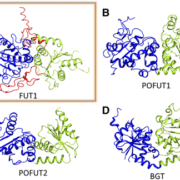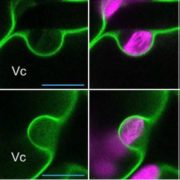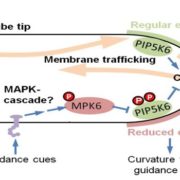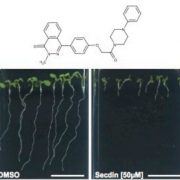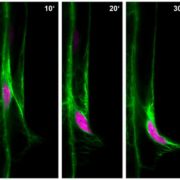Review: Autophagy as a mediator of life and death in plants ($)
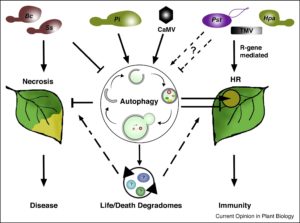 Autophagy is a major pathway involved in degradation and recycling of the cytoplasmic components in a cell. This pathway is functionally well conserved in maintaining cellular homeostasis and modulation of stress responses among yeast, plants and animals. Recent evidence suggests that autophagy targets a range of components in cell machinery. In plants, the role of autophagy in regulating programmed cell death (PCD) remains elusive and hence is a topic of intense investigation. Üstün et al. summarize the latest advances in understanding the mechanism of plant autophagy and discuss the implications of this process in regulating life and death decisions during development and pathogen challenge. The authors highlight selective autophagy mechanisms and shed light on the dual role of this process in either suppression or promotion of developmental, immunity-related and disease-related cell death pathways. The 2016 Nobel Prize for work on autophagy mechanisms should encourage further research in this area and deepen our understanding of these ‘life/death degradomes’. (Summary by Amey Redkar) Curr. Opin. Plant Biol. 10.1016/j.pbi.2017.08.011
Autophagy is a major pathway involved in degradation and recycling of the cytoplasmic components in a cell. This pathway is functionally well conserved in maintaining cellular homeostasis and modulation of stress responses among yeast, plants and animals. Recent evidence suggests that autophagy targets a range of components in cell machinery. In plants, the role of autophagy in regulating programmed cell death (PCD) remains elusive and hence is a topic of intense investigation. Üstün et al. summarize the latest advances in understanding the mechanism of plant autophagy and discuss the implications of this process in regulating life and death decisions during development and pathogen challenge. The authors highlight selective autophagy mechanisms and shed light on the dual role of this process in either suppression or promotion of developmental, immunity-related and disease-related cell death pathways. The 2016 Nobel Prize for work on autophagy mechanisms should encourage further research in this area and deepen our understanding of these ‘life/death degradomes’. (Summary by Amey Redkar) Curr. Opin. Plant Biol. 10.1016/j.pbi.2017.08.011


